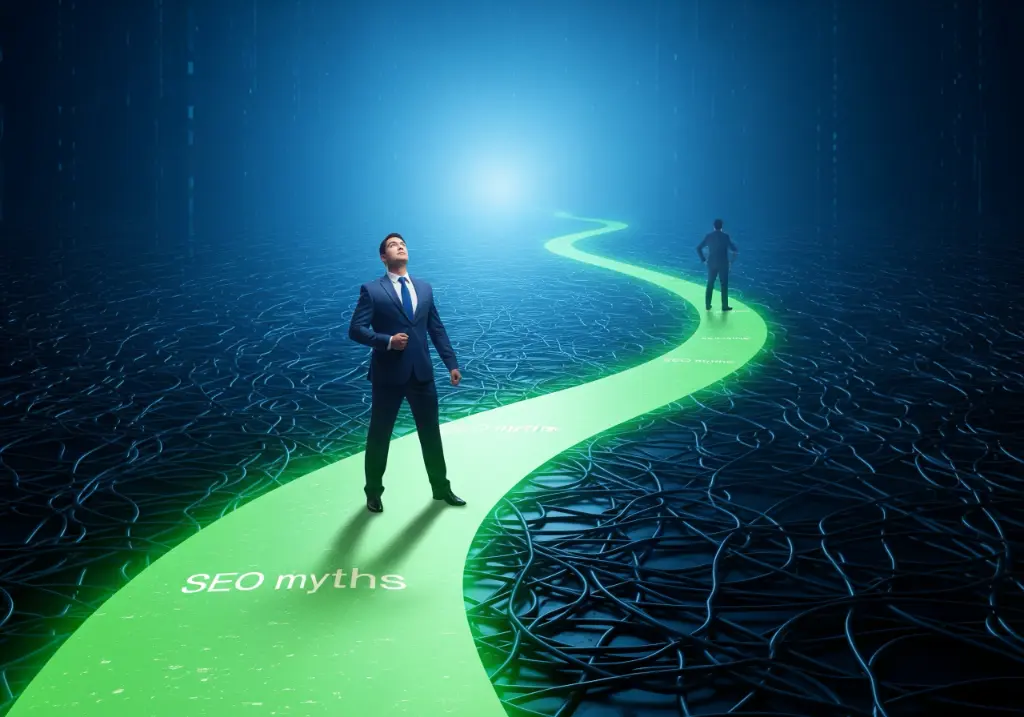
Myths About SEO That Entrepreneurs Believe
In the world of digital marketing, there are many misconceptions, especially when it comes to SEO (Search Engine Optimization). Entrepreneurs often face conflicting information that can lead to wrong decisions, wasted time, and money. In this article, we will debunk the most popular myths about SEO and show what the reality is.
Myth #1: SEO is "Black Magic" for the Chosen Few
Many believe that SEO is a complex, closed process that requires special knowledge available only to a narrow circle of specialists. This is not true. SEO is a set of clear and logical rules based on search engine algorithms. It includes technical optimization, keyword analysis, and creating quality content. Search engines like Google strive to provide users with the most relevant and useful information, and our job is to help them find your website.
Myth #2: SEO is a One-Time Setup
This is perhaps the most dangerous myth. Many entrepreneurs think they can set up SEO once and forget about it. Unfortunately, it doesn't work that way. Search engine algorithms are constantly changing, new competitors appear, and user behavior evolves. For your website to remain visible and generate traffic, SEO optimization must be an ongoing process that includes regular analysis, content updates, and technical improvements.
Myth #3: Keywords Are All You Need for SEO
While keywords are important, simply using them no longer guarantees high rankings. Modern search engines analyze not only keyword density but also content quality, its uniqueness, source authority, and user behavior. It's much more important to create useful and informative content that fully answers a user's query. If you are involved in website development, remember that structure, loading speed, and user-friendliness are also crucial.
Myth #4: SEO is Just About Content
Content is king, but without a good technical foundation, it won't work. Loading speed, mobile responsiveness, correct site structure, and the absence of errors and broken links are all critically important. For example, if your site loads slowly on mobile devices, Google will lower its ranking. That's why high-quality technical site optimization is an integral part of successful SEO.
Myth #5: The More Links, the Better
This is another outdated approach. In the past, the number of backlinks was the main indicator. Today, search engines look at their quality, not quantity. Links from authoritative, relevant resources are valued much higher than thousands of links from questionable sites. Low-quality links can even harm your ranking.
Conclusion
SEO is not magic, but a systematic effort that requires time, effort, and, most importantly, understanding. By debunking these myths, you can make more informed decisions for your business. If you want your website to not just exist but to work for you by bringing in new clients, entrust its promotion to professionals.
Learn more about our services: